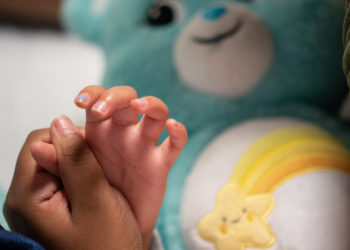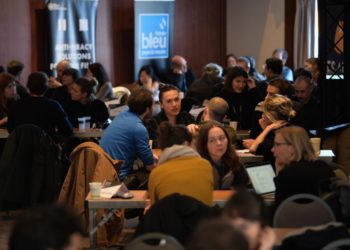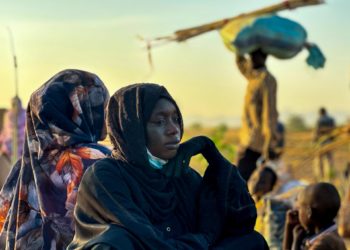Philippine Vice President Sara Duterte, the daughter of former President Rodrigo Duterte, is currently the front-runner to win the country’s next presidential election in 2028, according to a recent poll. Duterte, who is yet to announce her candidacy, downplayed the results and noted that 2028 is still far away. But her political strength is now undeniable. Her alliance made significant gains in May’s midterm congressional elections against opposition groups affiliated with President Ferdinand Marcos Jr. (Yes, you read correctly—the president and vice president are from different political parties.) Since the Philippine Constitution prevents presidents from seeking more than a single six-year term, this effectively eliminates Marcos, who is perhaps her toughest rival, from the field. Assuming that she runs—and barring a major slip up between now and the election—Duterte is likely to become the next Philippine president.
Because of this scenario, nearly every conversation I have had with U.S. and Asian interlocutors about the Philippines in recent years has raised the same, uncomfortable strategic question: Would Sara Duterte revert to her father’s China-friendly policies and skepticism of the United States, effectively undoing Marcos’s legacy of expanding and deepening the U.S.-Philippines security alliance to counter China?
The answer used to be quite ambiguous, since the younger Duterte had little record on the issue. But lately, she has shown her hand, revealing that she is inarguably more of a chip off the old block than a Marcos protégé.
Prior to a series of statements that she made last month, Manila and Washington already had concerns that Duterte would not be as tough on China as Marcos. In April 2024, for example, she responded with “no comment” when asked about Chinese harassment of Philippine vessels in the South China Sea—normally a safe issue to weigh in on in the Philippines, whose people and leaders are overwhelmingly suspicious of Beijing’s motives and activities. She referred reporters to a statement made by her brother Paolo Duterte, who said that it is not her role to “demonize” China.
Last month, Duterte argued that the Marcos administration, which she serves in, too strongly prioritizes the U.S. security alliance over relations with China. Instead, she believed that Manila should not be a “middle power in the game of supremacy and domination” between Beijing and Washington. Duterte pointed to the Philippine Constitution for her inspiration; she said the document “clearly states that we should have an independent foreign policy” rather than, as Marcos has done, “lean toward the U.S. for our problems with China, particularly our issues in the West Philippine Sea,” according to an interview she gave the anti-U.S. outlet RT, formerly known as Russia Today. A few days earlier, in a speech to Filipinos in Melbourne, Australia, Duterte implicitly criticized Manila’s acceptance of Washington’s stationing of Typhon missiles in northern Luzon, which has angered Beijing.
Other Philippine leaders have shown much outrage at Duterte’s policy positions. Marcos chided her for being “pro-China.” Meanwhile, the deputy majority leader of the country’s House of Representatives observed that she was always silent on Chinese incursions in the South China Sea, saying that her only response has been to “blame the [Philippines’] leadership.” A House representative-elect referred to her as a “traitor.”
But Duterte will not be cowed into submission. She responded to Marcos’s claim, for example, by saying, “They have been pushing that narrative for a long time, that I’m pro-China. I’m not pro any country at all. …What I always say is, we need to develop, we need to maintain, and we need to level up our relations with all countries, not just with China.”
To be sure, Duterte’s stated policy position is reasonable. Small- and medium-sized nations in the Indo-Pacific and around the world must determine how they are going to fit into intensifying U.S.-China competition—whether by seeking to strategically align with one great power over the other or by aligning with neither in an attempt to steer clear of trouble and reap benefits from both. If Duterte is elected, then she is poised to follow this well-worn path of remaining nonaligned, which is also commonplace throughout the rest of Southeast Asia and the broader global south.
The real concern in Manila, Washington, and other friendly capitals, however, is that Duterte’s policies may go beyond nonalignment and end up much closer to those of her father. As president from 2016 to 2022, Rodrigo Duterte not only argued that the Philippines should have less reliance on the United States and its security guarantees, but also promoted and implemented an actively pro-China approach. He supported initiatives such as joint exploration of the South China Sea with China, (for which he eventually walked back his support), as well as new investment and infrastructure development through Beijing’s Belt and Road Initiative to complement his own “Build, Build, Build” policy.
Simultaneously, he constantly threatened to undo the security alliance with the United States. In February 2020, he officially gave notice of his intent to cancel the United States’ Visiting Forces Agreement, an important agreement authorizing the U.S. military to seamlessly deploy to the Philippines, although he ultimately backed down. He also unofficially froze the Enhanced Defense Cooperation Agreement, which gives the U.S. military rotational access to five (now nine) designated bases across the Philippines, until he finally relented.
In the end, Rodrigo Duterte’s pro-China and anti-U.S policies were counterproductive. In the waning days of his tenure, he reversed his stance largely because of just how unpopular it was among the people. As for Sara Duterte, any revisiting of her father’s foreign policy is very likely to be met with deepening concern among the United States and its allies and partners in the region as they try to push back against China.
If she became president in 2028, it remains unclear whether Duterte’s policy positions would translate into nonalignment—or whether she would follow her father in implementing deliberately pro-China actions. Indeed, this is the new question that should be percolating around the Indo-Pacific and in the United States: To what extent would Duterte stay true to her finally revealed position of nonalignment in the Philippines’ foreign policy? That question will have to wait until 2028 for an answer.
The post The Philippines May Turn Its Back on the U.S. Again appeared first on Foreign Policy.




